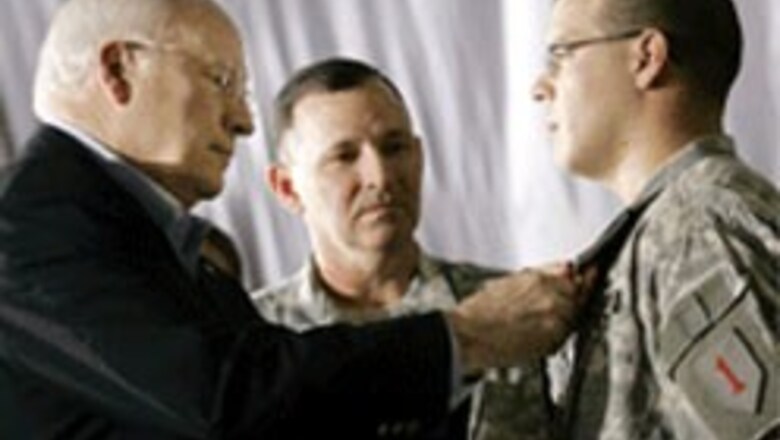
views
Baghdad (Iraq): The US military commander in charge of northern Iraqi operations on Friday said more troops are needed to stem rising insurgent violence in Diyala province.
"I do not have enough soldiers right now in Diyala province to get that security situation moving," said Army Maj. Gen. Benjamin R. Mixon, commander of the 25th Infantry Division.
Mixon's comments came as a political battle was being waged in Washington over whether funding for US forces fighting in Iraq should be tied to a deadline for their withdrawal.
In Washington on Thursday, the US House passed a bill that would tie war funding beyond July to a progress report. The bill faced an uncertain future in the Senate, however, and President Bush vowed to veto it.
Vice President Dick Cheney visited Iraq earlier this week with a tough message for Prime Minister Nuri al-Maliki that time is running out for a solution to the country's mounting security crisis.
A senior administration figure said Cheney told Iraqi officials that the situation had reached a critical point.
"We've got to get this work done. It's game time. ... Everybody's got to sit down, raise their game, redouble their efforts," the source said.
Mixon did not specify whether more US or Iraqi forces were needed. He made his comments during a news briefing from Iraq via teleconference at the Pentagon.
"We have plans to put additional forces in that area. ... We have put additional forces in there over that last couple months, an additional Stryker battalion, but I'm going to need additional forces in Diyala province to get that situation to a more acceptable level."
He said he has been in touch with General Raymond Odierno, the No. 2 US commander in Iraq, about more troops in Diyala, even before the troop escalation that the administration calls a "surge" began in February. He said Odierno has been "providing them over time as they have become available."
About 3,500 US soldiers, 10,000 Iraqi soldiers and several thousand police officers are stationed there. More than 3,000 additional police are needed, he said.
The level of violence has increased in Diyala, Mixon said, because the forces are increasing their offensive operations against the insurgents, many of whom have left Baghdad during the recent security crackdown, and because al-Qaeda in Iraq has made Diyala a focus.
"It's where many of their high-level individuals have been killed or captured," he said. "They declared it their caliphate a year or two ago. So they have been in there for a while."
PAGE_BREAK
Abu Musab al-Zarqawi, the late al-Qaeda in Iraq leader, was killed in a US airstrike last year while he was hiding in the Diyala town of Hibhib.
The province borders Iran and is an effective hiding place for insurgents.
"And quite frankly, there are a lot of former regime elements in there, and the Sunni population in certain areas were providing them support," Mixon said. "So we stepped up our offensive operations, and it was at that point when I realized that I was going to need additional forces."
On April 23, two suicide car bombers struck a US outpost in Diyala, killing nine American soldiers and wounding 20 others from the Army's 82nd Airborne Division.
Referring to the entire region he covers, which includes Nineveh, Salaheddin and Tameem provinces, Mixon said, "We are making progress," but added, "it is slow."
The "bureaucracy in Baghdad" needs to do a better job of helping and supporting soldiers, saying "ministries move too slow to provide help," even though the situation has improved.
He said the government needs to show the Iraqi people it can provide the proper security and services.
Mixon was asked about the US troop escalation called "the surge," and said those issues were being debated in Washington, and that his mind wasn't on possible deadlines for withdrawal that are being debated in Congress.
However, he said, "we just can't think about pulling out of here just like that."
"We need a long-term commitment in some form or fashion to ensure security in the region," he said, adding that it "doesn't need to be in the number we have now."


















Comments
0 comment